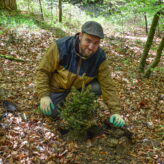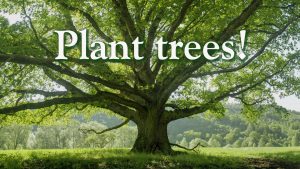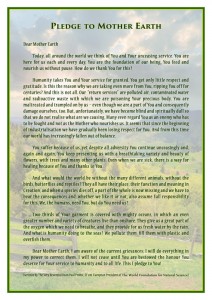Forests cover 40.3 million km2 of the Earth’s surface. One half are located in five countries alone, namely Russia, Brazil, Canada, China and the USA. Forests are of majestic beauty; 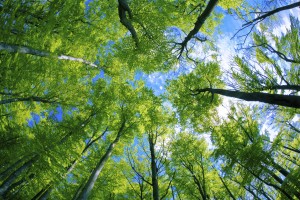 they are diverse, species-rich and absolutely indispensable. They are the habitat for over 90% of all terrestrial animals, they offer protection from avalanches and landslides, they provide shade and timber and are the storeroom for an uncountable variety of fruits and medicinal plants. Without forests there is no water! One square meter of forest soil retains up to 200 litres of water. Melting ice and rain water seeps into the ground and thereby gets filtered, thus providing clean ground water. Furthermore, trees are good “rainmakers” because vegetated areas absorb more solar energy than barren regions, which leads to more atmospheric precipitation, and also the leaves of trees humidifier the air. Both promoting rainfall.
they are diverse, species-rich and absolutely indispensable. They are the habitat for over 90% of all terrestrial animals, they offer protection from avalanches and landslides, they provide shade and timber and are the storeroom for an uncountable variety of fruits and medicinal plants. Without forests there is no water! One square meter of forest soil retains up to 200 litres of water. Melting ice and rain water seeps into the ground and thereby gets filtered, thus providing clean ground water. Furthermore, trees are good “rainmakers” because vegetated areas absorb more solar energy than barren regions, which leads to more atmospheric precipitation, and also the leaves of trees humidifier the air. Both promoting rainfall.
Trees are also intermediaries between the atmosphere and the planet. As such they are utterly essential for maintaining the balance between the elements of earth, water, air and fire. Without big, old trees the planet Earth is not feasible, and neither are we.
Reforestation
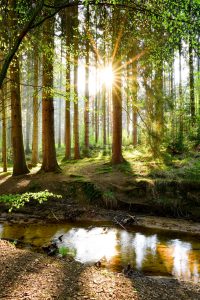
Taking into consideration recent global changes, it is essential to not only preserve and foster woodland but also to reforest on a massive scale. Half of the world’s forests have already been annihilated. And the uprooting still goes on. Each year 9,500,000 hectares of forest worldwide are cut down; this equates to an area of 18 football pitches per minute. In certain countries such as Switzerland model forest laws stipulate that the existing woodland area must be preserved unreservedly. But this is not sufficient. Many more trees must be replanted than have been cut down; because for a single, felled, centenarian beech tree, in order to ensure the same performance for life, you would have to plant two thousand young beech trees with a crown volume of 1 m3 each!
Make use of the International Arbour Day, taking place on the last friday of April every year, and plant a tree. Or ask about tree-planting campaigns in your vicinity.
Global Warming
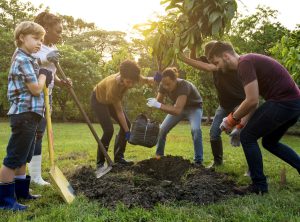
In relation to global warming there is mostly talk about the problem of CO2 output. Even though because of air pollution alone it is important and right to curtail the excessive output of CO2, the biggest problem to this effect is not the CO2, though, but deforestation. The fewer trees there are on this planet, the less CO2 is being absorbed and the less the increased warming – which is mostly the result of natural causes – can be balanced. Therefore, the focus of the political agendas and of environmental organisations should primarily be placed on reforestation projects. Planting trees is the simplest, least expensive and most effective way to do something against global warming.
You can do your personal bit for this by planting trees in your own garden.









